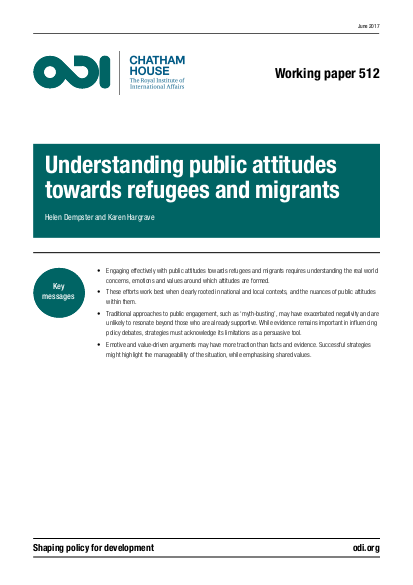Working Paper | 512

Understanding public attitudes towards refugees and migrants within their host communities is an increasingly important task. This working paper is intended as a primer – outlining current global polling data on public attitudes, and analysing what the literature has to say about the drivers influencing these attitudes.
This large evidence base has a number of implications for those working on refugee and migration issues:
- Engaging effectively with public attitudes towards refugees and migrants requires understanding the real world concerns, emotions and values around which attitudes are formed.
- These efforts work best when clearly rooted in national and local contexts, and the nuances of public attitudes within them.
- Traditional approaches to public engagement, such as ‘myth-busting’, may have exacerbated negativity and are unlikely to resonate beyond those who are already supportive. While evidence remains important in influencing policy debates, strategies must acknowledge its limitations as a persuasive tool.
- Emotive and value-driven arguments may have more traction than facts and evidence. Successful strategies might highlight the manageability of the situation, while emphasising shared values.